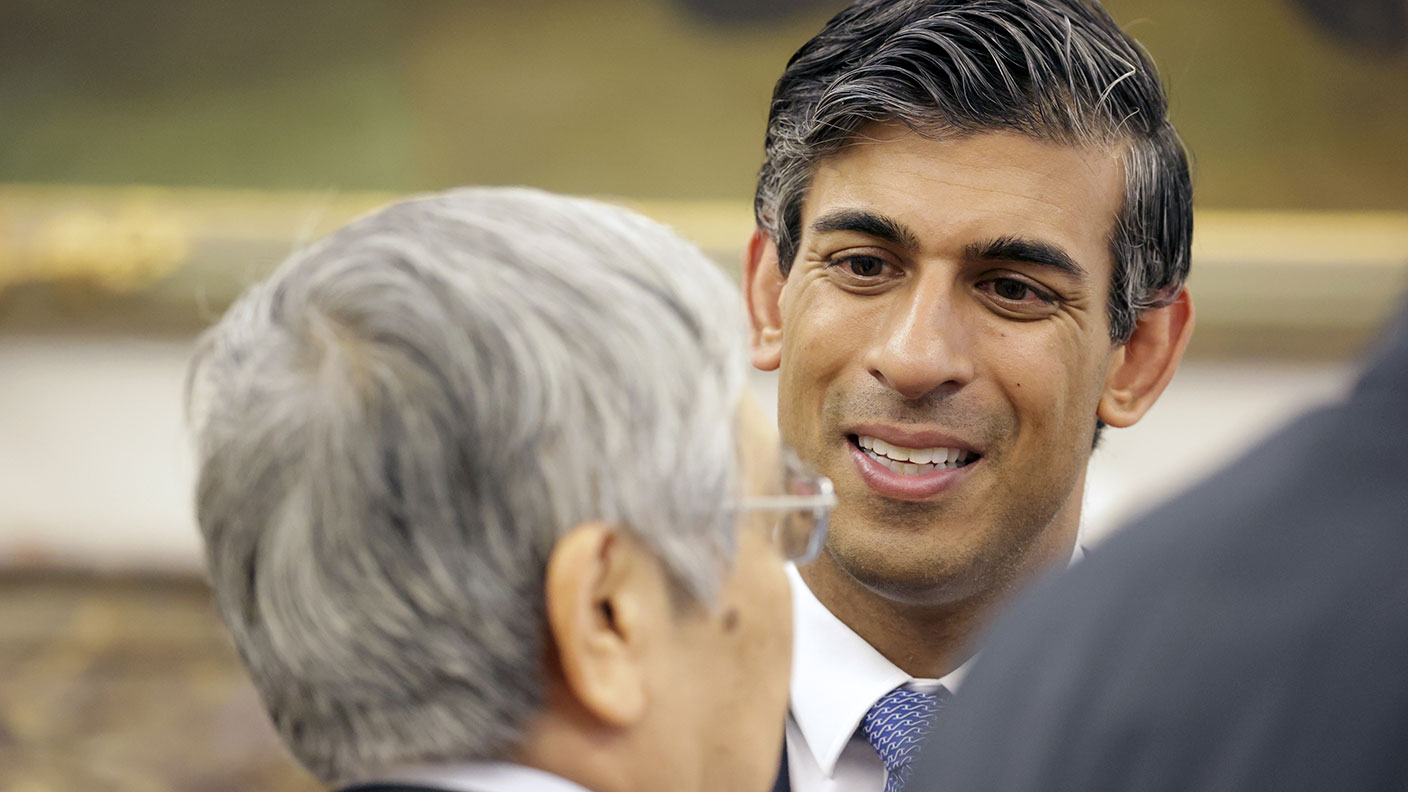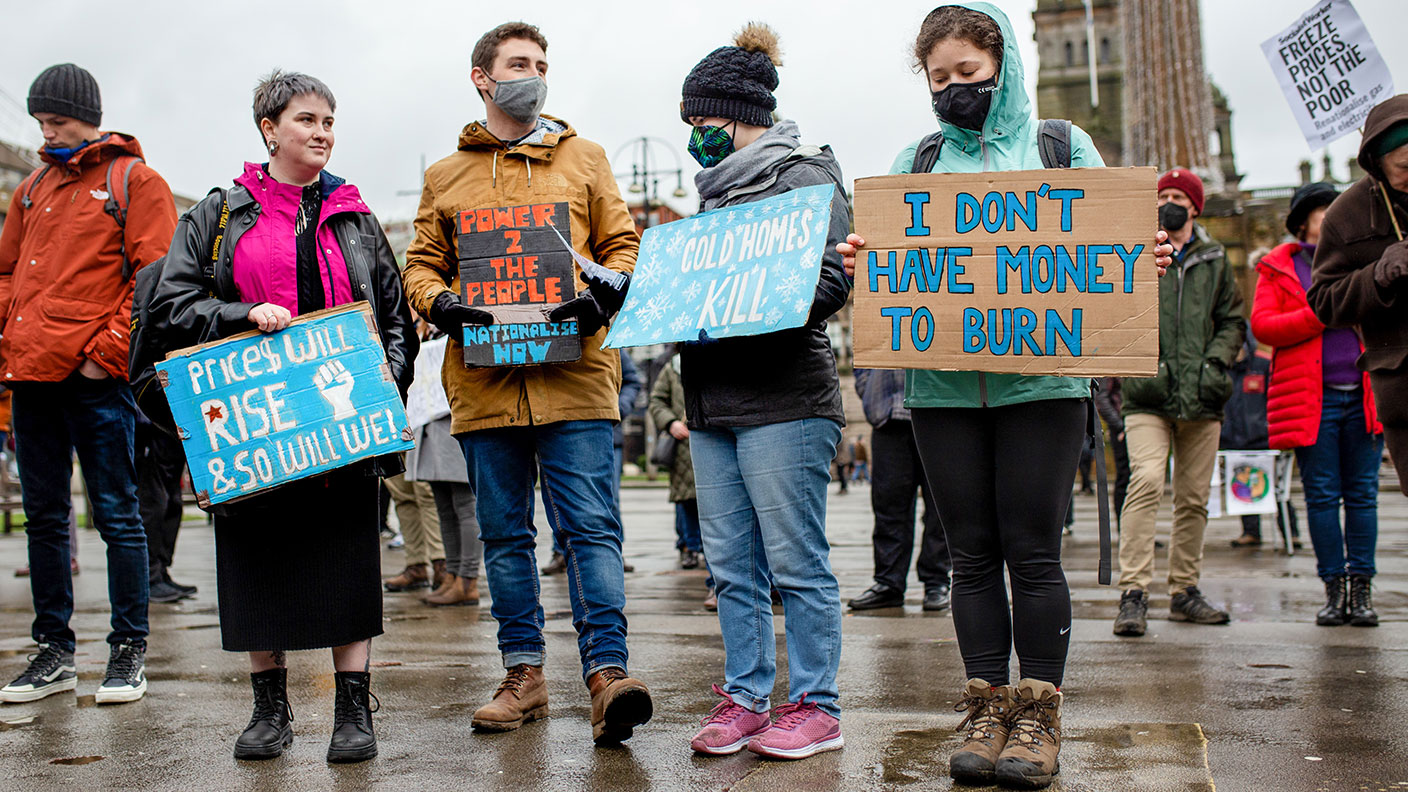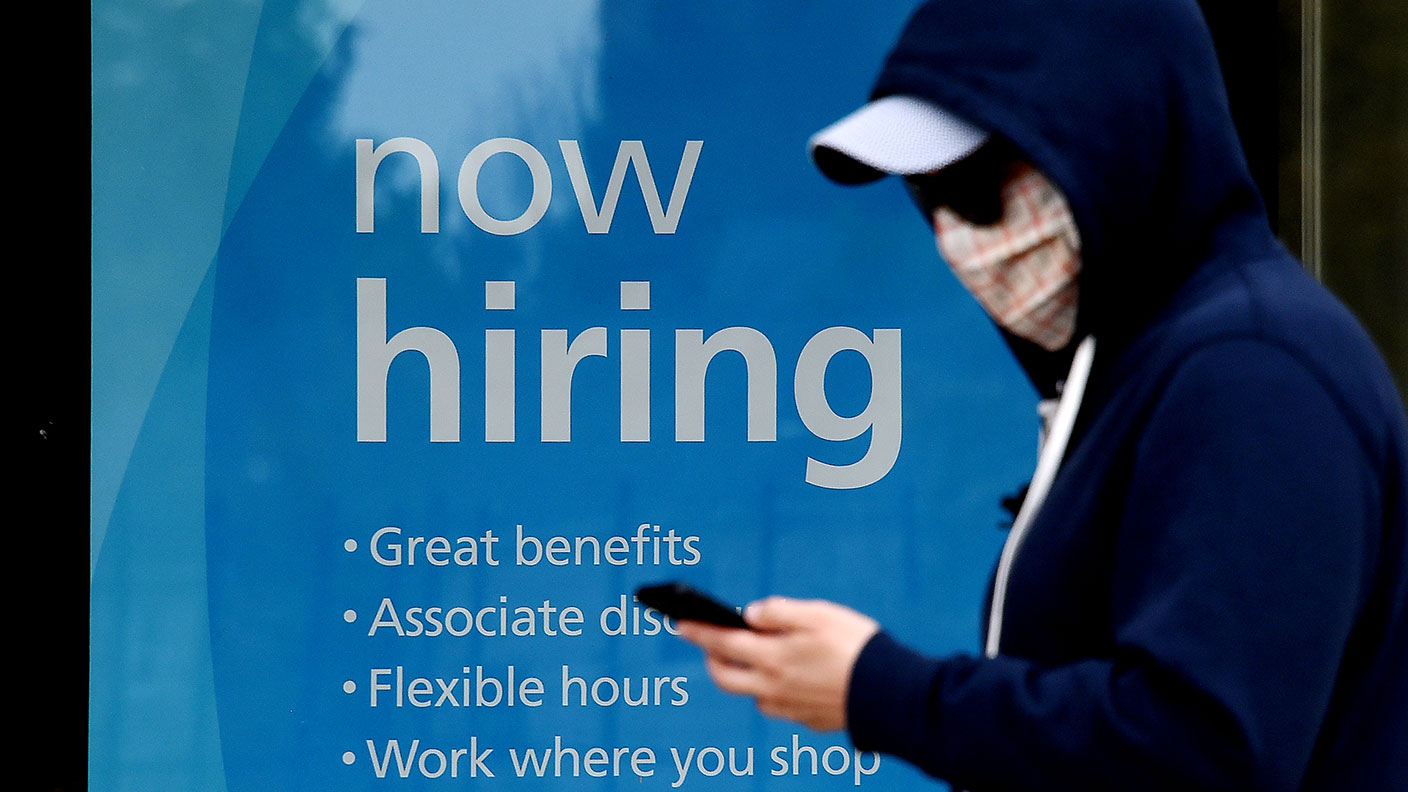It’s inflation or bust as far as the Federal Reserve is concerned
The US Federal Reserve decided not to raise interest rates at its latest meeting, preferring to wait until inflation really takes off. John Stepek explains what that means for the dollar, the wider markets, and for your money.

Get the latest financial news, insights and expert analysis from our award-winning MoneyWeek team, to help you understand what really matters when it comes to your finances.
You are now subscribed
Your newsletter sign-up was successful
Want to add more newsletters?

Twice daily
MoneyWeek
Get the latest financial news, insights and expert analysis from our award-winning MoneyWeek team, to help you understand what really matters when it comes to your finances.

Four times a week
Look After My Bills
Sign up to our free money-saving newsletter, filled with the latest news and expert advice to help you find the best tips and deals for managing your bills. Start saving today!

We won't worry about the election today. There's not much you can do from an investment point of view right now, so let's see what happens and we can talk about it tomorrow morning.
The good news is that something important for investors happened last night.
The world's most influential committee got together for another of their regular meetings on setting the most important price in the world.
MoneyWeek
Subscribe to MoneyWeek today and get your first six magazine issues absolutely FREE

Sign up to Money Morning
Don't miss the latest investment and personal finances news, market analysis, plus money-saving tips with our free twice-daily newsletter
Don't miss the latest investment and personal finances news, market analysis, plus money-saving tips with our free twice-daily newsletter
Yes, I'm talking about the Federal Reserve, America's central bank.
The Federal Reserve is now firmly on board with the wider market's hopes
Last night's Federal Reserve meeting will not go down in history as one of its more eventful ones. No changes were made to interest rates. The general message was "steady as she goes".
And yet, it may well mark the point at which Fed boss Jerome Powell was finally recognised by the market as one of the "doves" in the mould of the followers of Alan Greenspan.
The Fed now has no plan to raise interest rates any time soon. Powell said that he would rather hang off until there is "a significant move up in inflation that's also persistent". In shorter words, you could say: it's "inflation or bust" time at the Fed.
And there are no dissenters. No one on the Fed's committee reckons that interest rates will rise above 2% next year. Indeed, markets still believe that there will be a cut before the end of 2020.
This is quite a big deal really. The US just had an exceptionally strong jobs report, but the Fed didn't even feel the need to make any excuses here. The simple fact is that inflation isn't rocketing, the Fed's not sure why not, and so confidence is growing more and more that there's no need to worry about it.
It feels that there's a certain irony to the fact that Paul Volcker the Fed boss who crushed inflation in the 1980s died this week. We'll look at the implications of a more inflation-friendly Fed in a moment.
Should we worry about the repo market?
Just before that, a quick interlude at this point on something you may have read about the Fed also addressed a somewhat arcane area of the market that has been causing a few headaches in recent months.
The Fed has been printing money (it's not quite the same as quantitative easing in this case as it's very much focused on short-term assets) to tackle issues in the "repo" market, which saw the cost of overnight borrowing between financial institutions rocket in September.
The mechanics here are complicated. I don't want to get into it here because I'm not convinced that I've unravelled the plumbing myself. (I can recommend the excellent Bloomberg Odd Lots podcast if you really want to delve into the details this is the one you need).
But to cut a long story short, one concern is that borrowing costs will spike again at the end of the year. And as far as I can work out, the issue is that if borrowing costs spike for a sustained period of time, then markets will be short of liquidity, and as a result, you'll get a sell-off as people flog their most liquid stuff in order to raise funds.
In other words, they'll dump the blue chips and the easily liquidated stuff (which implies a sell-off for gold too, I guess) in order to get their hands on ready funds.
Does this seem likely? Given that the Fed already knows about it, you would think they would find a solution. I get the impression that it's not quite that simple, mainly because of regulatory changes.
But now that Powell has rather put his neck on the line by waving it away and saying it's all fine, you have to think that they must have a plan in place.
In the meantime, if you read panicky stuff about the "repo" market, that's what it's referring to. And I wouldn't worry about it even if institutions do become forced sellers of the most liquid assets, all that really means is that you and I might get a brief chance to snap up some of the good stuff on the cheap.
Also, if it happens, Zoltan Pozsar the Credit Suisse analyst who saw this coming ahead of September's problems reckons the Fed will have to reignite genuine quantitative easing, which would in turn, of course, buoy up markets again.
Watch the dollar and the euro
Anyway, back to the impact of an inflation-hungry Fed. Again, this all primarily boils down to the US dollar and where it goes next. To my mind, for the inflation story to come to pass (which I firmly believe is the "end" scenario for this particular cycle), the dollar has to weaken.
A weaker dollar would imply higher commodity prices and (even) higher equity markets, but also in the longer run, a slip in bond prices (and thus a rise in yields) and rising inflation in the US.
If the Fed stays the course and lets inflation tick higher, then that will in turn feed into a weaker dollar. Eventually, something will give. But for now, the thing to keep an eye on is the dollar (we do this every week in Saturday Money Morning).
On that front, it'll also be interesting to see what the European Central Bank (ECB) does today. The euro is the world's second-most important currency. If it weakens, it's hard for the dollar overall to weaken much.
And yet the euro is an odd one. All else being equal, you would generally expect that a more aggressive central bank (ie, one with a bias towards raising interest rates) is more supportive of its currency than a more "dovish" one (ie, one focused on looser monetary policy).
But in the eurozone, all else isn't equal. Markets are at least as worried by the problem of weak economic growth in the eurozone. Weak economic growth leads to political dissatisfaction, which represents an existential threat to the euro.
So, while new ECB head Christine Lagarde is set to lean more towards the dovish side, this may not hurt the euro. Indeed, if it looks as though she's going to be able to twist the arms of the more fiscally cautious countries somehow, then it might even strengthen the currency.
So keep an eye on her speech later today.
If nothing else, it'll keep your mind off the election.
Get the latest financial news, insights and expert analysis from our award-winning MoneyWeek team, to help you understand what really matters when it comes to your finances.

-
 Should you buy an active ETF?
Should you buy an active ETF?ETFs are often mischaracterised as passive products, but they can be a convenient way to add active management to your portfolio
-
 Power up your pension before 5 April – easy ways to save before the tax year end
Power up your pension before 5 April – easy ways to save before the tax year endWith the end of the tax year looming, pension savers currently have a window to review and maximise what’s going into their retirement funds – we look at how
-
 Is the US in recession and does it matter?
Is the US in recession and does it matter?Analysis There's a heated debate over whether the US is in recession or not. But why does it matter? John Stepek explains
-
 Has the chancellor done enough to save the UK from recession?
Has the chancellor done enough to save the UK from recession?Analysis UK Chancellor Rishi Sunak announced a new package last week to ease the cost of living crisis. John Stepek explains whether the risk of a UK recession still remains.
-
 Is the UK too open to overseas takeovers?
Is the UK too open to overseas takeovers?Analysis Data shows that the UK is more open to overseas takeovers than other major markets. John Stepek asks: should investors care?
-
 How to manage your money as inflation just keeps rising
How to manage your money as inflation just keeps risingAnalysis Uk inflation is at a 30-year high – and it won't be falling any time soon. So what can you do? John Stepek explains how to manage your money to combat rising prices.
-
 Inflation is going to stay even higher for even longer
Inflation is going to stay even higher for even longerAnalysis Commodity prices – everything from energy to food – are going through the roof. And that’s not likely to end any time soon, says John Stepek. Here's what that means for how you invest.
-
 Inflation is incredibly inconvenient, as we’re all about to learn
Inflation is incredibly inconvenient, as we’re all about to learnAnalysis Inflation doesn't just eat into your wealth, it eats into your time – and can be devastating for those on the lowest incomes. And it's not going away any time soon, says John Stepek. Here's how to invest.
-
 The cost of living crisis is global – US inflation just hit another 40-year high
The cost of living crisis is global – US inflation just hit another 40-year highAnalysis With US inflation running at 7.5%, it’s clear that the cost of living crisis is not confined to the UK. John Stepek looks at the likely reaction from governments and central banks, and what it means for you.
-
 The strong US jobs report is good news for the economy, but not so much for markets
The strong US jobs report is good news for the economy, but not so much for marketsAnalysis January's US jobs report came in much stronger than anyone was expecting, with 467,000 new jobs added to the economy. But things might not be quite as rosy as they seem, says John Stepek. Here's why.